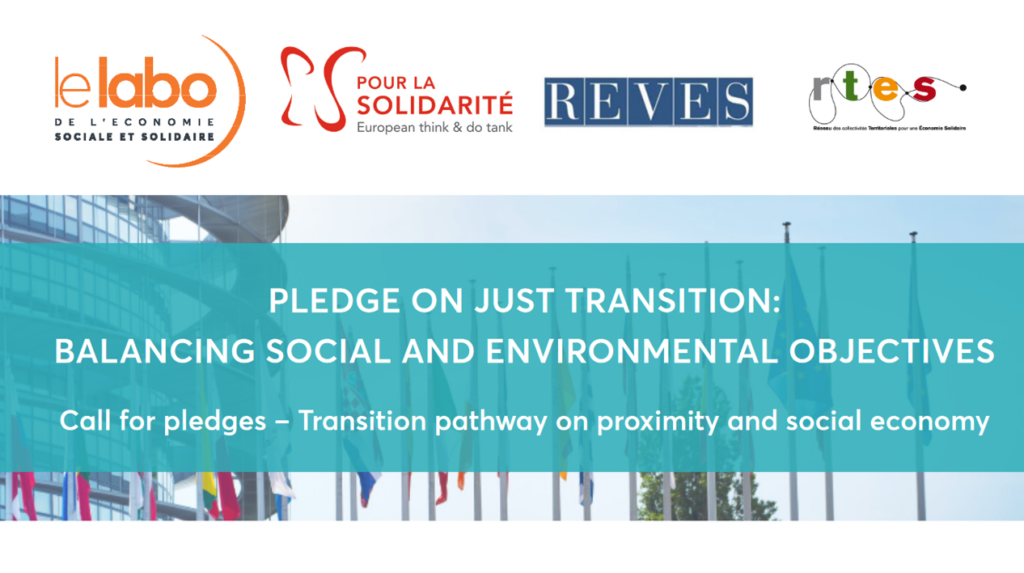 This report is a pledge made as an answer to the call for pledges published by the European Commission as part of the transition pathway on proximity and social economy. The involves a pledge led by “Le Labo de l’ESS” in France, in partnership with “Pour la Solidarité” in Belgium, the European Network of Cities and Regions for the Social Economy (REVES) and the French network of Territorial Authorities for the Solidarity Economy (RTES). It focuses on Just Transition, namely a transition that is ecological, and socially fair and inclusive. Its objective is two-fold: i) pioneering the concept of Just Transition; ii) illustrating how social economy (SE) contributes to Just Transition.
This report is a pledge made as an answer to the call for pledges published by the European Commission as part of the transition pathway on proximity and social economy. The involves a pledge led by “Le Labo de l’ESS” in France, in partnership with “Pour la Solidarité” in Belgium, the European Network of Cities and Regions for the Social Economy (REVES) and the French network of Territorial Authorities for the Solidarity Economy (RTES). It focuses on Just Transition, namely a transition that is ecological, and socially fair and inclusive. Its objective is two-fold: i) pioneering the concept of Just Transition; ii) illustrating how social economy (SE) contributes to Just Transition.
After having introduced the concept of a just transition, the report argues why social economy is a vehicle to implement it. Then different initiatives are described through a typology that distinguishes four ecological elements, namely the circular economy, short supply chains, energy efficiency in the building sector, and access to quality food. Each time, the way ecological objectives are met in conjunction with social objectives is explained. Finally, the report concludes by highlighting the conditions of success deduced from the selected initiatives.
The report has two annexes. Annex I highlights the order of magnitude of the four main issues at stake in Europe (circular economy, short supply chains, energy efficiency in the building sector, and access to quality food). Annex II describes selected initiatives.
The report is available HERE.
Leave a Reply
You must be logged in to post a comment.